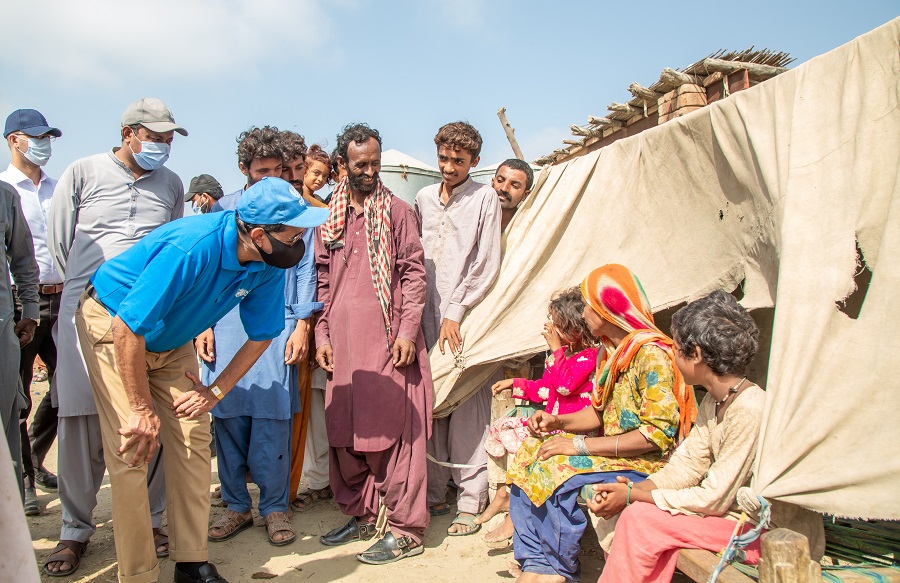
18 September 2022, Rajanpur, Punjab – Zubaida's family, like thousands of others, built their shelter in Kot Mithan Rajanpur with a few sheets of cloth and whatever they could salvage from their flooded village home.
Holding her children, Zubaida said she worries about her family as who are falling sick regularly as they couldn’t afford to pay for treatment; even if they manage to get hold of some money, it is not possible to get medicine as all roads are damaged”.
“Our men have to guard their flooded homes as well as the line-up for hours to secure flood aid, so it would be better if we could get free medicine with emergency supplies from the Government”, she added.
The catastrophic flooding in Pakistan had affected 33 million people by early September, injuring at least 15 000 and killing over 1500. People have been left without food, shelter and basic health care services, the country has been hit hard by multiple health emergencies in flooded communities.
With more than one third of the country reportedly submerged, 10% of health facilities have been damaged, and over 500 000 people are living in relief camps with hindered access to health services.
Surveillance and routine immunization programmes have been significantly disrupted and health service delivery interrupted affecting public health systems in flooded districts.
Additionally, people are living in informal settlements, camped along roadsides to escape surrounding flood water by setting up shelter with whatever they have.
During his visit to a displaced community, WHO Representative to Pakistan Dr Palitha Mahipala cautioned that the “current situation is critical as millions have been displaced. A comprehensive and speedy health response is needed to deliver interventions to areas with high incidence of disease and to vulnerable groups such as pregnant women, newborns, people with physical disabilities and the elderly.
WHO has initiated an immediate health emergency response to treat the injured, provide life-saving supplies to health facilities and support mobile health teams to prevent outbreaks and spread of infectious diseases.
Additionally, WHO has also set up an emergency operations centre in Rajanpur to support flood response operations and medical camps in affected populations.
“WHO is focusing on the provision of immediate health services and disease surveillance to prevent and control disease outbreaks in flood-affected areas. I am hopeful that these emergency health supplies will help to protect people at risk of diarrhoeal infections and the spread of diseases,” Dr Palitha added.


